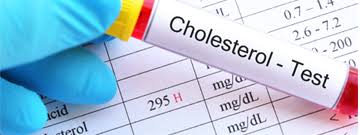An individual’s serum cholesterol level includes measurements of HDL cholesterol, LDL cholesterol, and triglycerides in the bloodstream. This level serves as an indicator of their susceptibility to conditions such as heart diseases.
Cholesterol, a type of fatty substance found in the body, plays multiple roles in the human body. However, most people associate high levels of cholesterol to increased risk of heart disease. A person’s serum cholesterol level can serve as an indicator of his/her susceptibility to cardiovascular conditions. In this article, we will explore the significance of serum cholesterol, optimal ranges, serum cholesterol test price, and more.
What is Serum Cholesterol?
Cholesterol is a fatty, waxy substance produced by cells in the liver and released into the bloodstream. Through a blood test, a doctor can assess levels of:
- Low-density lipoprotein (LDL) cholesterol
- High-density lipoprotein (HDL) cholesterol
- Triglycerides
To determine total serum cholesterol, a doctor will calculate the sum of the LDL level, the HDL level, and 20% of the triglyceride level found in a blood sample. A serum cholesterol test price can vary depending on the diagnostic lab you choose. At Apollo 24|7, the serum cholesterol test price is just Rs 250.
How Does Serum Cholesterol Impact Your Health?
Typically, individuals with lower LDL cholesterol levels and higher HDL cholesterol levels tend to have healthier serum cholesterol readings. This is due to the fact that HDL cholesterol aids in reducing LDL cholesterol’s presence in the bloodstream. It also helps prevent the accumulation of LDL cholesterol, which can form hard deposits known as plaques. These plaques adhere to artery walls, leading to reduced blood flow. Over time, plaques can enlarge, causing arteries to narrow and stiffen. This process can result in conditions such as ischemic stroke, heart diseases, and vascular dementia.
A substantial buildup of LDL cholesterol in arteries can obstruct blood and oxygen flow to organs and tissues, leading to severe health complications. Moreover, cholesterol plaques have the potential to dislodge and travel to other arteries in the body, exacerbating blockages and increasing the risk of stroke. Cholesterol embolism, characterised by the movement of a clot, can also occur in various parts of the body, including organs like kidneys, causing damage. Complications associated with high serum cholesterol levels include heart attack, stroke, coronary artery disease, and tissue or organ damage.
The impact of triglycerides on health is less well-defined. However, elevated triglyceride levels may indicate a heightened risk of other conditions, such as heart diseases. Additionally, extremely high levels of triglycerides can trigger pancreatitis.
Ideal Serum Cholesterol Levels
Here’s what ideal serum cholesterol test results should look like:
- Serum cholesterol – Under 200 mg/dL
- HDL cholesterol – Over 55 mg/dL for women and over 45 mg/dL for men
- LDL cholesterol – Under 130 mg/dL
- Triglycerides – Under 150 mg/dL
How to Maintain Healthy Serum Cholesterol Levels?
Here are some diet and lifestyle tips you can follow to ensure optimal serum cholesterol levels.
- Ensure that trans and saturated fats make up no more than 6% of your daily calorie intake.
- Increase the consumption of whole vegetables and fruits.
- Reduce the intake of full-fat dairy products, such as butter, cream, whole milk, and cheese.
- Incorporate more cereals and whole grains into your diet.
- Avoid heavily processed foods.
- Decrease the consumption of pork, lamb, red meat, and poultry items.
- Substitute meat with plant-based protein sources, like quinoa and tofu.
- Choose skin-free poultry and fish such as trout, herring, salmon, and mackerel.
- Limit the intake of oil high in trans fats, such as sunflower, canola, olive, and corn oils.
- Consume fewer refined carbohydrates found in bread, crackers, pastries, and chips.
- Increase dietary fibre intake.
- Avoid sugary foods and drinks, including chocolate bars, juices, candy, sodas, pre-made smoothies, and energy drinks.
- Quit smoking or refrain from starting.
- Reduce alcohol consumption.
- Aim for at least 30 minutes of exercise daily.
- Address any related medical conditions, such as high blood pressure and diabetes.
Serum cholesterol provides valuable insights into a person’s cholesterol levels, which are crucial indicators of their risk for severe heart conditions like heart attack or stroke. It is recommended that adults over 20 years old undergo testing for serum cholesterol levels and other heart disease indicators every 4-6 years. Those at higher risk due to factors like high blood pressure may need more frequent testing. Individuals with diabetes should also monitor their cholesterol levels regularly, as diabetes can elevate LDL cholesterol levels. Notably, paying the minimal serum cholesterol test price proves invaluable in preventing potentially higher medical expenses in the future.
Topics #cholesterol test price #Serum #Serum Cholesterol #serum cholesterol test price










